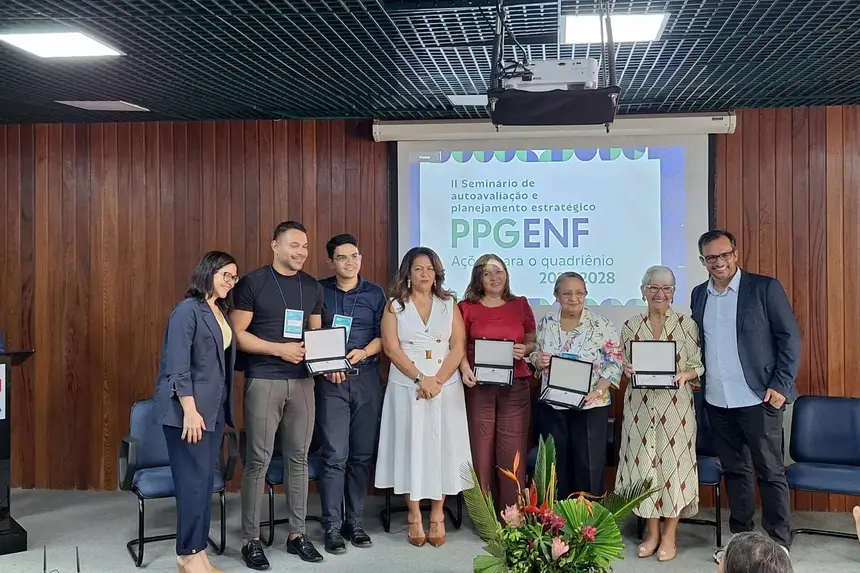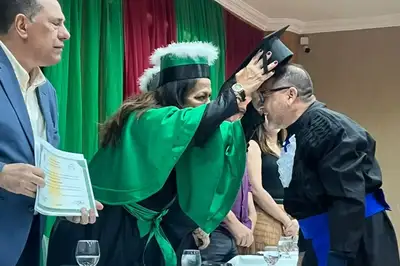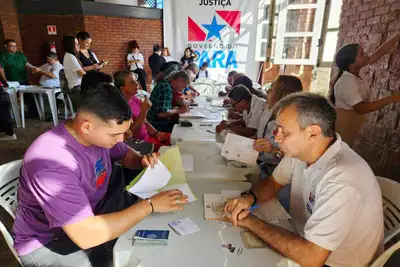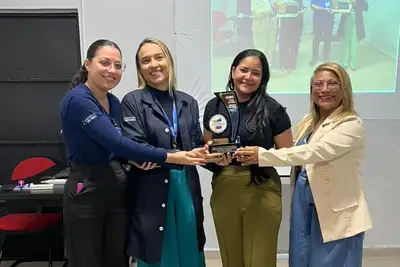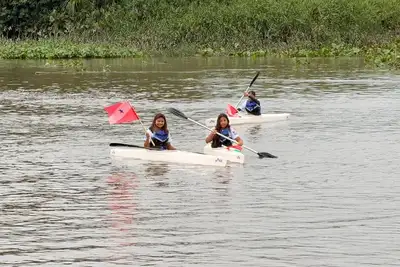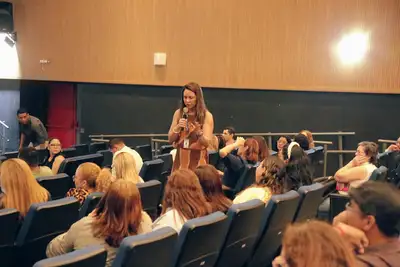Uepa/Ufam Nursing Graduate Program Promotes Planning Seminar and Strengthens Science with Social Impact in the North
Graduate courses enhance knowledge and promote scientific research in the health field and the development of Amazonian nursing
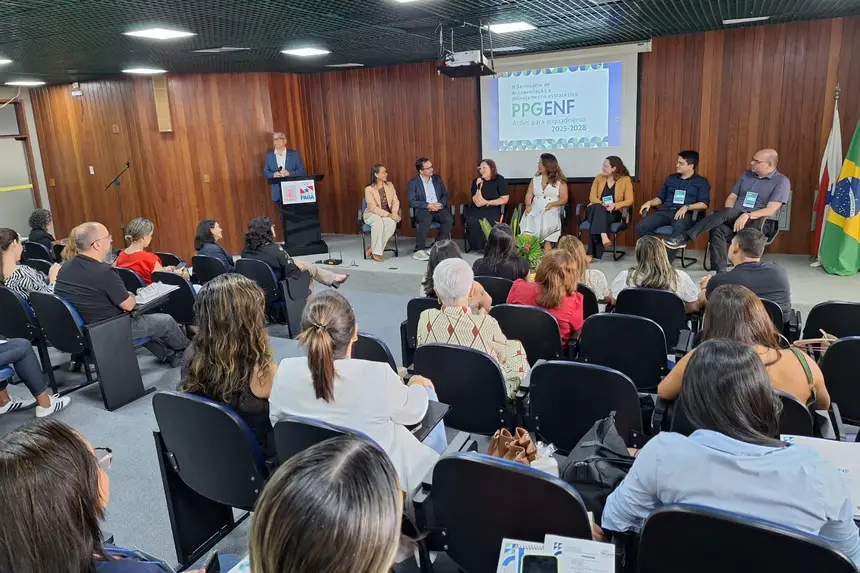
Recognized as a reference in nursing education, the Magalhães Barata Nursing School (EEMB) of the State University of Pará (Uepa) also stands out for its graduate programs (PPGENF), offering a master's degree for 15 years and, since 2024, the first academic doctorate in nursing in the Northern region. Linked to the Center for Biological and Health Sciences of Uepa and in partnership with the Federal University of Amazonas (Ufam), EEMB offers graduate courses that enhance knowledge and promote scientific research in the health field and the development of Amazonian nursing.
To reflect on the 15 years of history of the graduate program, PPGENF began this Tuesday (30), the II Seminar on Self-Assessment and Strategic Planning, aiming to define the next goals with the academic community and the requirements of the Coordination for the Improvement of Higher Education Personnel (Capes), in addition to strengthening the program and planning strategic actions for the 2025/2028 quadrennium. The official opening took place in the auditorium of the Hemopa Foundation.
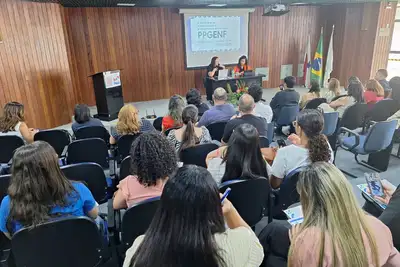
Currently, the program is rated 4 by Capes. In addition to Belém, in 2022, the PPG implemented the extension of the master's course in the municipality of Santarém. Between Pará and Amazonas, there are already about 250 new master's graduates in nursing in the region, transforming various scenarios, whether in the training of new nurses, in the assistance and management of health services, or in strengthening the field.
With debates and meetings of thematic Working Groups (GTs), participants will be involved with the aim of deepening the critical analysis of the different evaluative axes of the program. The opening included a debate in a 'talk show' format, with the participation of the deputy coordinator of the Academic PPGs in the nursing area/Capes, Agnes Olschowsky, about Capes' criteria and perspectives for the evaluation of graduate nursing programs in the Northern region. The seminar continues on the 1st and 2nd, at EEMB, with the plenary session for socializing the GTs to consolidate the strategic guidelines that will guide the program's action plan.
The opening of the seminar was attended by the Vice-Rector Ilma Pastana; the Pro-Rector of Research and Graduate Studies, Luanna Fernandes; the local coordinator of Ufam, Edson Santos Júnior; the general coordinator of the Graduate Program, Rubenilson Caldas Valois; representatives of faculty, alumni, and students of the program, and other staff.
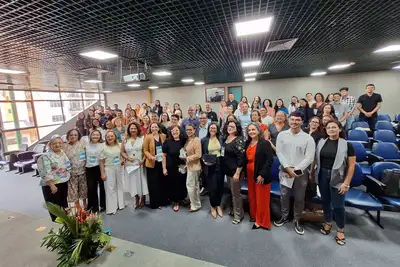
Coordinator of the PPGENF Uepa/Ufam, Professor Rubenilson said that, through its faculty, students, alumni, institutional managers, and partners, this is the moment for strengthening and reflecting on the advances and challenges of the Graduate Program in nursing.
Student Eliza Paixão da Silva shared that being in this program as a doctoral student is a joy and, at the same time, a great responsibility. “We are building the course, focusing on the Amazon as the center of our research and contributing to the growth of the nursing field in the Northern region,” said the nurse who graduated from Uepa in both undergraduate and master's programs.
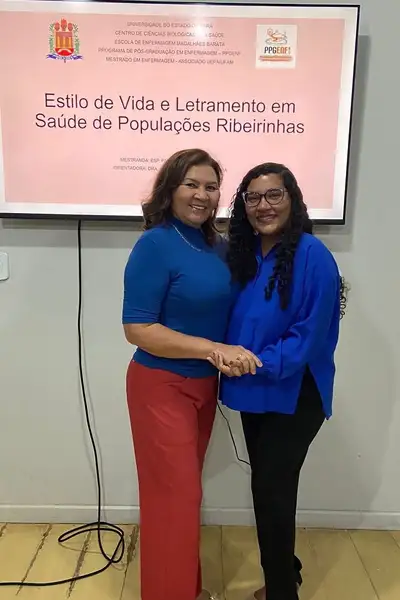
Research - "Lifestyle and Health Literacy of Riverine Populations in the Brazilian Amazon," by student Paula Gisely Costa Silva, supervised by Professor Laura Vidal, is one of the recent studies developed in the PPGENF master's program, which points to the consolidation of scientific production focused on social impact, innovation, and sustainability.
Lifestyle, influenced by social factors, can affect health positively or negatively. In riverine communities, the study observed concerning changes, such as the increase in harmful habits, including smoking, excessive alcohol consumption, sedentary lifestyle, and inadequate diet.
Conducted on the islands of Cotijuba and Combu, the research analyzed the correlation between lifestyle and health literacy among riverine populations, essential for promoting healthy practices, such as skills to access, understand, and apply health information, which directly contributes to individual and collective well-being. A total of 200 riverine individuals attended local health units participated through questionnaires.
Seventeen distinct health literacy profiles were identified, with greater differences in dimensions related to social support, seeking reliable information, and the ability to use health services. While some groups face greater barriers to accessing health, others manage to mobilize support networks and adopt more positive behaviors despite difficulties, said the researcher.
Paula explained that identifying vulnerabilities in riverine populations reveals different needs and highlights the complex relationship between socioeconomic factors, health literacy, and lifestyle. The study can provide subsidies for the development of more contextualized and equitable public policies and health actions.
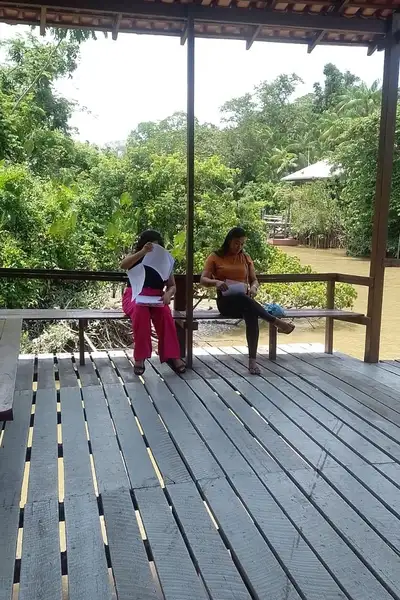
Supervisor Laura Vidal highlighted that, at Uepa, studies on Health Literacy have been developed by faculty, undergraduate and graduate students within the Study Group on Traditional Amazonian Populations (Geapa), with very satisfactory results, especially among riverine populations, a traditional population of the Amazon and Pará, with many difficulties in accessing health services. Health literacy among riverine populations is essential to understand the level of knowledge and its importance for the quality of life of the population.
"Doing the master's in nursing at Uepa/Ufam was a transformative experience. The program provided me not only with scientific and methodological deepening but also the opportunity to reflect on the challenges of health in our Amazonian reality. The quality of the faculty, the exchange with colleagues from different contexts, and the encouragement of research committed to social demands were differentiators that marked my education," she reported. The master's student also considered that this experience contributed to her personal and professional growth, reinforcing the importance of public universities in the production of scientific knowledge and the appreciation of nursing.
E-books - The launch of e-books also marks the advances of nursing at the State University of Pará and highlights the dissemination of academic production of research developed by students and faculty, reinforcing the commitment to valuing the results generated by nursing. Organized by faculty of PPGENF/Uepa, in Belém and Santarém, the digital book Cultural Interfaces of Caring: Amazonian Voices in Graduate Studies presents nine chapters that explore interfaces between cultural studies and nursing in the Amazon context. The chapters were produced between students and their supervisors, based on curricular activities of the graduate program. Published by Pedro & João Publishing, it is available for free at this link.
Nursing and Transmissible Diseases in the Amazonian Context, is another e-book with research conducted by master's students and faculty of PPGENF Uepa/Ufam, which brings together eight studies on transmissible diseases in the Amazon, revealing the unique challenges faced by nursing science in one of the most complex regions of the country. Through research on COVID-19, leprosy, HIV/AIDS, and tuberculosis, the authors reveal how socio-environmental factors, biodiversity, and population vulnerabilities shape the epidemiological landscape of the Amazon. Access can be made on the Uepa Publisher's website.


